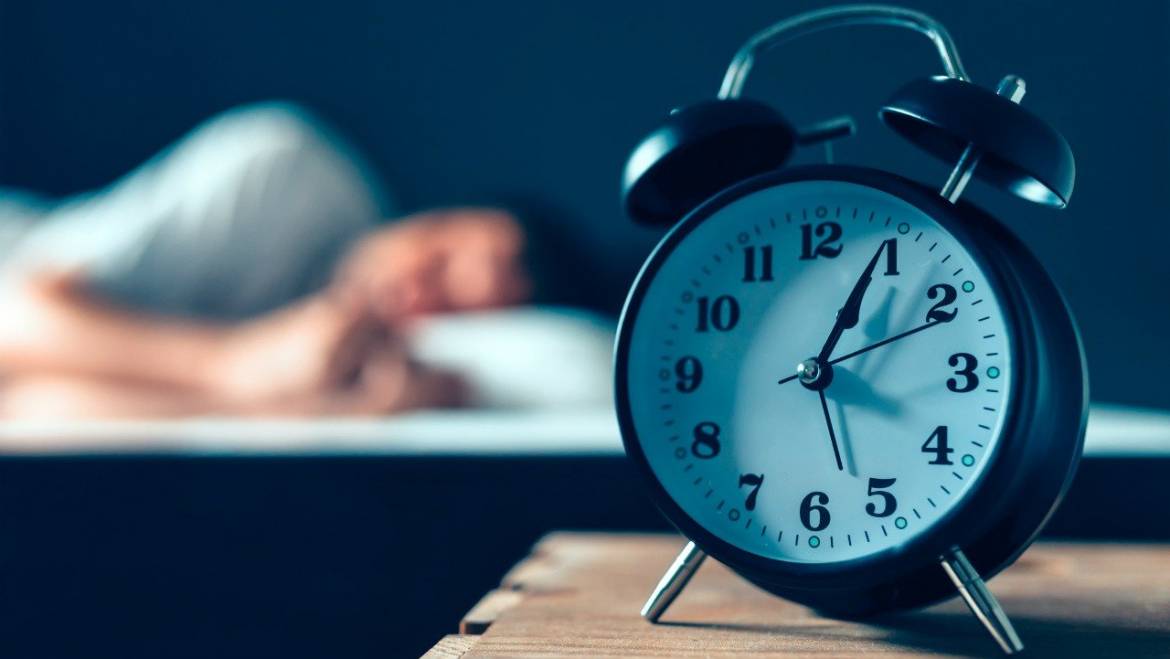Optimal Sleep for Performance and Recovery
Sleep: Micro-Entry
All substance, no fluff. By Dr. Allan Bacon
Overview
Sleep is integral to healthy mental and physical functioning. Adequate sleep improves stress coping, cognitive processes, hormone regulation, insulin sensitivity, fat loss and body fat regulation, fine motor accuracy, gross motor skills, and psycho-motor skills. Contrary to the standard 7-8 hours of sleep recommendation, optimal sleep is likely ~8-10 hours per night for active individuals.

Obesity, diabetes, and high cholesterol are more prevalent among irregular sleepers. Shift workers are particularly susceptible to an increased risk of metabolic disorders due to irregular sleep patterns.
It is important to establish a sleep pattern that is consistent across both the traditional work week and weekend. Extra sleep following a poor night’s sleep does not fully mitigate sleep loss’s effects. It takes multiple days of extended/regular sleep to attenuate previous losses in sleep quality and quantity.
Engaging in resistance exercise is advantageous, particularly when that training is spaced 3 hours or more from sleep.
By understanding sleep, its benefits, and the costs of sleep loss, you can make efforts to optimize your health and performance. Along with the aforementioned resistance training, the following video lists the top methods for improving the quantity and quality of your sleep!
8 Tips for Optimizing Performance and Recovery

The Research

The present study observed increased hunger, food cravings, food reward, and portion sizes of food after a night of modest sleep loss. These mal-adaptive responses could lead to higher energy intake and, ultimately, weight gain.
Contrary to the much touted “7-8 hours per night” recommendation, humans may require upwards of 10 hours to achieve optimal sleep duration.

Although timing of resistance exercise (RE) does not seem to statistically impact sleep stages or nocturnal blood pressure, these data indicate that engaging in RE at any time of the day may improve quality of sleep as compared with no RE.

The studies reviewed here do not support the hypothesis that evening exercise negatively affects sleep, in fact rather the opposite. However, sleep-onset latency, total sleep time, and sleep efficiency might be impaired after vigorous exercise ending ≤1 hour before bedtime.

Poor sleep quality is associated with an increase in total body fat, but not specifically a higher amount of visceral adipose tissue.

Sleep restriction affects the amount of fat loss when in a hypo-caloric diet. Not only does a person lose more lean mass relative to fat mass, but fasting Leptin levels are also negatively affected.
Sleep extension was associated with improved direct and indirect measures of insulin sensitivity, decreased leptin and peptide tyrosine-tyrosine, and reductions in overall appetite, desire for sweet and salty foods, intake of daily free sugar, and percentage of daily caloric intake from protein.
https://www.ncbi.nlm.nih.gov/m/pubmed/31166059/
Increased variability in sleep duration and timing was associated with higher prevalence and incidence of metabolic abnormalities even after considering sleep duration and other lifestyle factors.
https://care.diabetesjournals.org/content/early/2019/05/21/dc19-0596

Psycho-motor skills, sport-specific fine accuracy, and gross motor skills (such as endurance and power) are all negatively affected when an athlete experiences sub-optimal sleep.
The discovery of reciprocal connections between the central nervous system, sleep and the immune system has shown that sleep enhances immune defences and that afferent signals from immune cells promote sleep. One mechanism by which sleep is proposed to provide a survival advantage is in terms of supporting a neurally integrated immune system that might anticipate injury and infectious threats. However, in modern times, chronic social threats can drive the development of sleep disturbances in humans, which can contribute to the dysregulation of inflammatory and antiviral responses. In this Review, I describe our current understanding of the relationship between sleep dynamics and host defence mechanisms, with a focus on cytokine responses, the neuroendocrine and autonomic pathways that connect sleep with the immune system and the role of inflammatory peptides in the homeostatic regulation of sleep. Furthermore, I discuss the therapeutic potential of harnessing these reciprocal mechanisms of sleep–immune regulation to mitigate the risk of inflammatory and infectious diseases.
doi:10.1038/s41577-019-0190-z
Partial sleep deprivation equating to 4 hrs of sleep causes subtle, but potentially important negative impairments on athletic performance.
DOI: 10.1080/02640414.2019.1662539
1 week of sleep restriction negatively affects testosterone production in men.
DOI: 10.1001/jama.2011.710
Sleep restriction impaired glucose, but improved lipid metabolism. This was associated with an increase in afternoon cortisol, without significant changes in ACTH, suggesting enhanced adrenal reactivity. Increased cortisol and reduced sex hormone binding globulin (SHBG) are both consistent with development of insulin resistance, although hepatic insulin resistance calculated from fasting HOMA did not change significantly. Short term sleep curtailment leads to changes in glucose metabolism and adrenal reactivity, which when experienced repeatedly may increase the risk for type 2 diabetes.
DOI: 10.1371/journal.pone.0041218
Sleep deprived men can have as much as 50% less total testosterone than their adequate sleep counterparts. Sleep duration, independently of age, aerobic exercise, and body fat, was positively associated with T and BioT, but not with DHEAS, E2, or any of the sexual activities studied.
DOI: 10.2164/jandrol.109.007856, DOI: 10.1093/sleep/30.4.427, DOI: 10.3109/01485018308990167
In otherwise healthy adults, short-term consequences of sleep disruption include increased stress responsivity, somatic pain, reduced quality of life, emotional distress and mood disorders, and cognitive, memory, and performance deficits. For adolescents, psychosocial health, school performance, and risk-taking behaviors are impacted by sleep disruption. Behavioral problems and cognitive functioning are associated with sleep disruption in children. Long-term consequences of sleep disruption in otherwise healthy individuals include hypertension, dyslipidemia, cardiovascular disease, weight-related issues, metabolic syndrome, type 2 diabetes mellitus, and colorectal cancer. All-cause mortality is also increased in men with sleep disturbances. For those with underlying medical conditions, sleep disruption may diminish the health-related quality of life of children and adolescents and may worsen the severity of common gastrointestinal disorders.
DOI: 10.2147/NSS.S134864
Both total and partial SD induce adverse changes in cognitive performance. First and foremost, total SD impairs attention and working memory, but it also affects other functions, such as long-term memory and decision-making. Partial SD is found to influence attention, especially vigilance. Studies on its effects on more demanding cognitive functions are lacking. Coping with SD depends on several factors, especially aging and gender. Also interindividual differences in responses are substantial. In addition to coping with SD, recovering from it also deserves attention. Cognitive recovery processes, although insufficiently studied, seem to be more demanding in partial sleep restriction than in total SD.
https://pubmed.ncbi.nlm.nih.gov/19300585/
Poor sleep quality may raise the risk of hypertension by 20% and diabetes by up to 40%.
doi: 10.5665/sleep.6078
Sleep deprivation may lead to depression, worsen pain, lower performance, alter tissue sensitivity, and double injury risk.
DOI: 10.1136/bjsports-2017-097890
Sleep plays a crucial role in physical and cognitive performance and is an important factor in reducing risk of injury.
DOI: 10.1016/j.jsmc.2019.11.005
Approximately 1 hr of SR on five nights a week led to less proportion of fat mass loss in individuals undergoing hypocaloric weight loss, despite similar weight loss. SR may adversely affect changes in body composition and “catch-up” sleep may not completely reverse it.
DOI: 10.1093/sleep/zsy027
Energy intake was higher following sleep curtailment than control, being derived primarily from carbohydrates. However, sweet taste preference and active ghrelin did not correlate with energy intake. These results suggest that acute consecutive sleep curtailment increases sweet taste preference, active ghrelin, and energy intake in healthy young adults.
DOI: 10.3390/bs10020047
Our findings suggest that the less variability in sleep duration or an adequate sleep duration the greater the success of the lifestyle interventions in adiposity.
https://doi.org/10.1038/s41366-019-0401-5
Poor sleep quality was associated with greater food intake and lower-quality diet, which can increase cardiovascular disease risk. Future studies should test whether promoting sleep quality could augment efforts to improve cardiometabolic health in women.
DOI: 10.1161/JAHA.119.014587
Sleep restriction has previously been associated with the loss of muscle mass in both human and animal models. The rate of myofibrillar protein synthesis (MyoPS) is a key variable in regulating skeletal muscle mass and can be increased by performing high-intensity interval exercise (HIIE), although the effect of sleep restriction on MyoPS is unknown. In the present study, we demonstrate that participants undergoing a sleep restriction protocol (five nights, with 4 h in bed each night) had lower rates of skeletal muscle MyoPS; however, rates of MyoPS were maintained at control levels by performing HIIE during this period. Our data suggest that the lower rates of MyoPS in the sleep restriction group may contribute to the detrimental effects of sleep loss on muscle mass and that HIIE may be used as an intervention to counteract these effects.
doi.org/10.1113/JP278828
There is no best sleep posture. Sleep posture is altered roughly every hour or so.
doi: 10.2147/NSS.S145777
Compared to those in the first quartile of perceived stress, women in the fourth quartile were almost four times and men almost six times more likely to have poor sleep quality. Perceived stress was inversely associated with sleep duration and positively associated with poor sleep quality.
https://pubmed.ncbi.nlm.nih.gov/22900457/
Stress awareness is associated with short sleep duration; specialized workers, office workers, those with above mid-high household income and graduate, university, or college level workers especially need to sleep adequately to manage stress.
DOI: 10.3390/ijerph15040796
In this review, we provide the evidence of the impact of circadian disruption on skeletal muscle loss resulting in sarcopenia. Furthermore, we highlight the importance of exercise timing (i.e., scheduled physical activity) as a novel therapeutic strategy to target circadian disruption in skeletal muscle.
DOI: 10.3390/ijms21093106
This randomized controlled trial suggests that combining regular resistance exercise training with optimization of sleep health provide significant added benefits to body composition. This optimization provides a simple and cheap tool, applicable to the general healthy population. The group that improved sleep lost more body fat.
DOI: 10.23736/S0022-4707.20.10136-1
“reducing bedtime variability, without changing sleep duration, could improve cardiometabolic health by reducing adiposity and inflammation,”. Results showed that women who reduced their bedtime variability (n = 29) during the intervention had reductions in total (P < 0.001) and subcutaneous adipose tissue (P < 0.001) relative to women who increased/maintained (n = 8) bedtime variability. Similar effects were observed for leukocyte platelet aggregates (LPA) levels between women who reduced vs increased/maintained bedtime variability (P = 0.011).
doi.org/10.1038/s41366-020-0555-1
The amount of human sleep contributes to the maintenance of fat-free body mass at times of decreased energy intake. Lack of sufficient sleep may compromise the efficacy of typical dietary interventions for weight loss and related metabolic risk reduction.
doi: 10.1059/0003-4819-153-7-201010050-00006
7 hours in bed is suboptimal for cognitive performance compared to 9 hours.
DOI: 10.1046/j.1365-2869.2003.00337.x
The majority of adults require 8 hours of sleep, whereas intensely training athletes require 9-10 hours.
Venter, Ranel. Role of sleep in performance and recovery of athletes: A review article. January 2012. South African Journal for Research in Sport, Physical Education and Recreation 34(1):167-184
Increased sleep duration is independently associated with a reduced risk of in-season injury in male collegiate basketball players, even after adjustment for training load and subjective well-being. The effects of mood, fatigue, and stress on injury were no longer evident after adjustment for the effect of sleep duration.
DOI: 10.1177/2325967120964481
If exercise ends greater than 2 hours before sleep, sleep quality is increased. Exercising within 2 hours of attempting to fall asleep may impair sleep quality and may increase duration to falling asleep.
DOI: 10.1016/j.smrv.2021.101535
Sleep deprivation impairs muscle regeneration in rats, moreover reduces muscular IGF-1 and sleep recovery was able to restore it to basal levels, but it was not enough to normalize the muscle regeneration.
DOI: 10.1080/08977194.2017.1314277
Based on the available research, most studies agree on a sleep goal of ~9h in high performance athletes. Nine hours may seem excessive to some, but given the absolute importance of sleep to overall well-being as well as performance, the three pillars of health (diet, exercise, and sleep) cannot be overstated. Especially for those wanting to optimize performance and recovery, sleep should be emphasized and included as a top priority (as important as their exercise routine and diet).
doi: 10.1055/a-0905-3103









1 Comment
Comments are closed.